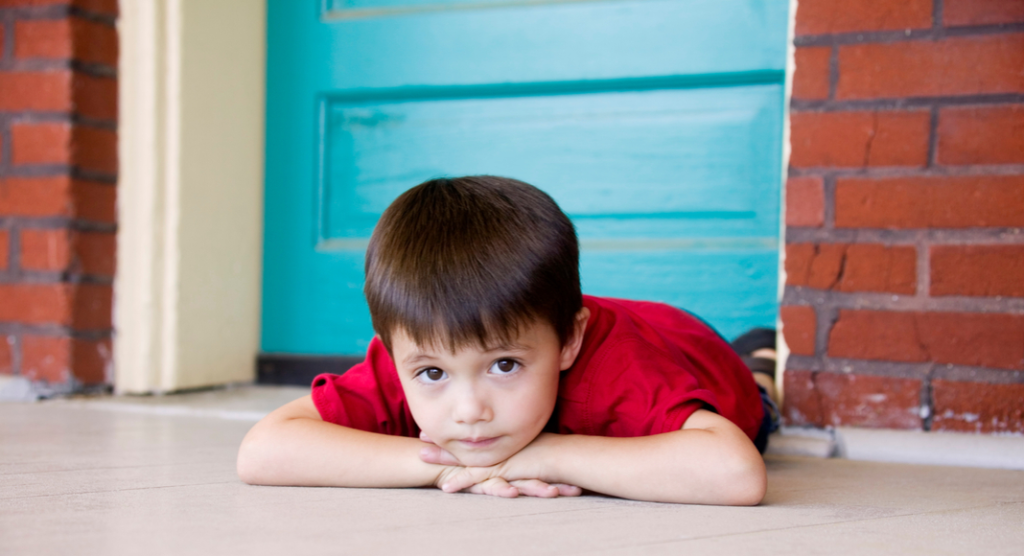
I have a recurring fantasy. It consists entirely of me going about my daily business for a single hour alone. No, “Watch this/can you get me/help me/I need/Mom/Mommy/MOM!”
Motherhood is many wonderful things. It can also be smothering, especially when your kids are young enough that you are their preferred helper, audience, and confidante all day, every day. Often, I welcome these roles, but sometimes I just want to hide from my children or substitute a life-size cardboard Mom cutout who could watch 57 different versions of a 4-year-old jumping into a pool while I go do something else.
But then it happened: my oldest child told me in no uncertain terms to “Go away!” In fact, he repeated it three times as he shut his bedroom door in my face. I’m sure I’ll soon forget why he was angry with me. (In summary: Boy hits sister for no reason, then has new toy taken away for the evening.) But I’m going to remember that night as the moment I got a taste of life with kids who don’t always want me around.
It didn’t taste good.
Every child operates on their own timeline when it comes to setting boundaries or seeking personal space away from their parents. The same is true for a child’s experimentation with pushing a loved one away when they feel angry or hurt. I have no idea whether my son, nearly 7, was late or early to adopt this behavior —as my firstborn, he and I are both figuring all this stuff out for the first time. But I know I wasn’t ready when it happened.
In the past, when my son would become enraged, he seemed to want me to witness his fury, or if the door was slammed it quickly opened again. So I pretended to be busy near his room for a while after he shut me out, certain at any moment he’d emerge and insist I come in to continue the book we were reading, hear a rambling story about summer camp that day, or at least whine for the toy that had been confiscated from him. It didn’t happen.
Eventually, I went in anyway, hugged him and said goodnight. He had cooled down, and we were fine. But I felt the tiniest change in the atmosphere between us and realized that while I may still be his favorite companion for a little while longer, there will come a point not long from now when I’ll be the one doing everything short of backflips to get his attention. I’m going to get a lot more “Go aways,” both verbal and— probably worse—in the form of a silent eye-roll or disdainful glare.
I imagine that next stage of parenting will be a difficult one, a perfect example of, “You don’t know what you’ve got ‘til it’s gone.” But it’s a necessary transition, part of the process of forming an independent identity that will carry our kids into adulthood. For my son, I think pushing me away that day was also a safe way to test whether I’d still be there when he was ready. And I was.
It’s important for parents to recognize and respect our kids’ boundaries, even if we’re not happy about it and even if those boundaries appear before we expect them to. What’s equally important is that when we “go away,” we never go far.















